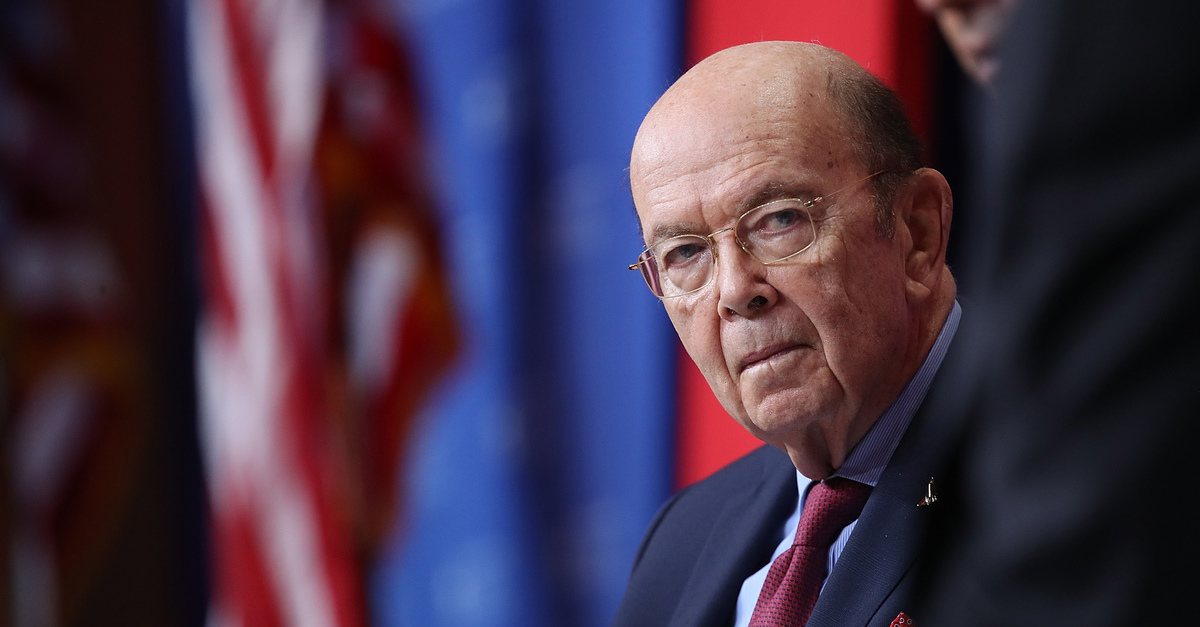
Drama continues to ensue in the litigation over the 2020 Census and Wilbur Ross‘ questions about citizenship. When last we left the case, a California federal judge had handed down a nationwide injunction, after concluding that including the citizenship question violated not only the Administrative Procedure Act (APA), but the Enumeration Clause of the Constitution, too. U.S. District Judge Richard Seeborg’s order made a pretty clear statement that he had no time for Wilbur Ross and his paltry justifications for including the question.
That particular California case, however, is trailing behind one brought by New York and a coalition of states, cities, counties, and mayors, which is SCOTUS-bound and scheduled for oral arguments in late April. That case was fast-tracked to the high court after the Trump Administration fought to shield Wilbur Ross from even submitting to a deposition.
On Friday, the Supreme Court issued an order changing the plan for those April 23rd oral arguments. Now, instead of the Court only considering how the APA affects the controversy, it’ll also be considering whether Ross’ actions violated the Enumeration Clause of the U.S. Constitution. The change is an important one. It gives the challenging states and civil rights groups the chance to bring up an entirely new legal issue, as well as 2,000 extra words to address the issue in their briefs (due on April 1). The government will be granted the right to respond to this new issue as well—and it has been given an extra 1,000 words to do so.
That clause requires an “actual enumeration” of the population to apportion seats in the House of Representatives; a lower court ruled recently in another case that adding the citizenship question would lead to an inaccurate count, violating that requirement
— SCOTUSblog (@SCOTUSblog) March 15, 2019
The Enumeration Clause is also known as the “Census Clause” (found in Article 1, sections 1 & 2 of the Constitution) and reads:
Representatives…shall be apportioned among several states…according to their respective numbers…the actual enumeration shall be made within three years and the first meeting of the Congress of the United States of America, and within every subsequent term of ten years in such manner as they shall by law direct.
Its purpose is to calculate the number of Congressional representatives that each state may elect, based on the population of that state. So it’s kind of a big deal. There’s always plenty of debate over whether the clause requires actual head-counting or simply an estimated total, and who exactly (Residents? Citizens? Those in the continental U.S. or those in territories such as Puerto Rico?) gets counted.
SCOTUS’ decision to widen the scope of the litigation may have been the direct result of a letter sent to the Court’s clerk on March 11 by Solicitor General Noel Francisco. In that letter, Francisco outlined several reasons why it simply makes more sense for SCOTUS to consider the Enumeration Clause issue now, rather than wait for an inevitable petition for certiorari in the California case – especially since the June census deadline is looming large:
In light of the June 2019 deadline to finalize the decennial census questionnaire, we respectfully suggest that the most orderly path forward would be for this Court to hold the forthcoming California petition and address the Enumeration Clause claim in its disposition of this case. That would avoid the prospect of having to address the Enumeration Clause claim in the California case in a highly expedited or emergency posture.
The Court’s decision to include the Enumeration Clause issue isn’t necessarily a showing of its hand; without question, including the Constitutional issue in the New York case is far more efficient than waiting for an entirely separate case to make its way to the Court; unlike most branches of government, the judiciary does tend (at least attempt) to favor efficiency regardless of how it’s leaning in a particular case. Still, including a secondary ground on which challengers might very well prevail on the census issue is no small victory for those seeking to oust the citizenship question.
More issues raised means more avenues for success (not to mention more billable hours for those raising them). All census-savvy eyes will be on the Court as April 23 approaches; until then, we can look forward to seeing the sudden influx of Enumeration Clause experts making their way to cable news debates.
Follow Elura Nanos on Twitter @elurananos
[image via Win McNamee/Getty Images]
This is an opinion piece. The views expressed in this article are those of just the author.